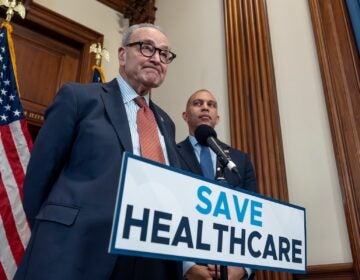The developing third party in the 2012 presidential election
Not happy with your choices for president of the United States in 2012? Feeling angry at both Republicans and Democrats? Rejoice! There will be a third party alternative. A well-funded non-profit called Americans Elect is hard at work getting qualified for ballot access, and taking aim at all 50 states.
Americans Elect has already qualified to be on the ballot in key swing states of Florida, Ohio, Michigan, and 10 others including California. Apparently funded by wealthy hedge fund managers, the organization expects to qualify for ballot access in every state, and to hold an on-line primary election in April to select its candidates for president and vice-president. Voters can register on-line to vote in the primary.
Former New Jersey Governor Christie Todd Whitman is on the Americans Elect board of directors. Among the names being discussed as possible third party presidential candidates are Representative Ron Paul, former Governor Jon Huntsman, and Mayor Michael Bloomberg. Former Louisiana Governor Buddy Roemer is actively seeking the Americans Elect nomination.
How will this third party affect the outcome of the 2012 presidential election? Anything can happen in a three-way race. If Americans Elect succeeds in getting on the ballot in every state, there will be at least a possibility that its candidates could win. The more likely result, however, is that the third party will affect the outcome of the race between the two major parties by drawing votes that would otherwise go disproportionately to one of the major party candidates.
No doubt the major party presidential campaigns would prefer to keep the race between the two major parties rather than have to deal with the uncertainty of a three-way race. The Obama re-election campaign would probably be the beneficiary if a Republican or former Republican like Ron Paul, Huntsman, or Bloomberg is the candidate.
But what if someone from the political left gets the nomination? Is Ralph Nader too old now? What about Dennis Kucinich or Bernie Sanders of Vermont? A third-party candidate like that could throw the election to the Republican, just as Ralph Nader is accused of having elected George W. Bush over Al Gore in 2000.
One lurking question surrounding Americans Elect is the identity of its funders who largely prefer to remain anonymous. Supporters respond that as long as the selection process is transparent and fair, the identity of contributors to its organizational and ballot access initiatives shouldn’t matter. Contributions to candidates for federal office will have to be disclosed pursuant to federal election law.
Previous third party presidential candidates who had an impact on a presidential election include former president Theodore Roosevelt in 1912, Strom Thurmond in 1948, George Wallace in 1968, John Anderson in 1980, Ross Perot in 1992, and of course, Ralph Nader in 2000.
The 2008 presidential campaign has been described as the most exciting in living memory. But the economically stressed political divisions of 2012 strike me as the most acute in living memory, reminiscent of the period before the Civil War, with many voters convinced that an opposition victory would mean disaster for the nation.
Combine that with the Tea Party and Occupy Wall Street, the new media of the internet, and the politically-oriented cable news networks, and then toss in a viable third party, and we have the makings for a historic, volatile, and very exciting political confrontation in the 2012 election.
WHYY is your source for fact-based, in-depth journalism and information. As a nonprofit organization, we rely on financial support from readers like you. Please give today.




